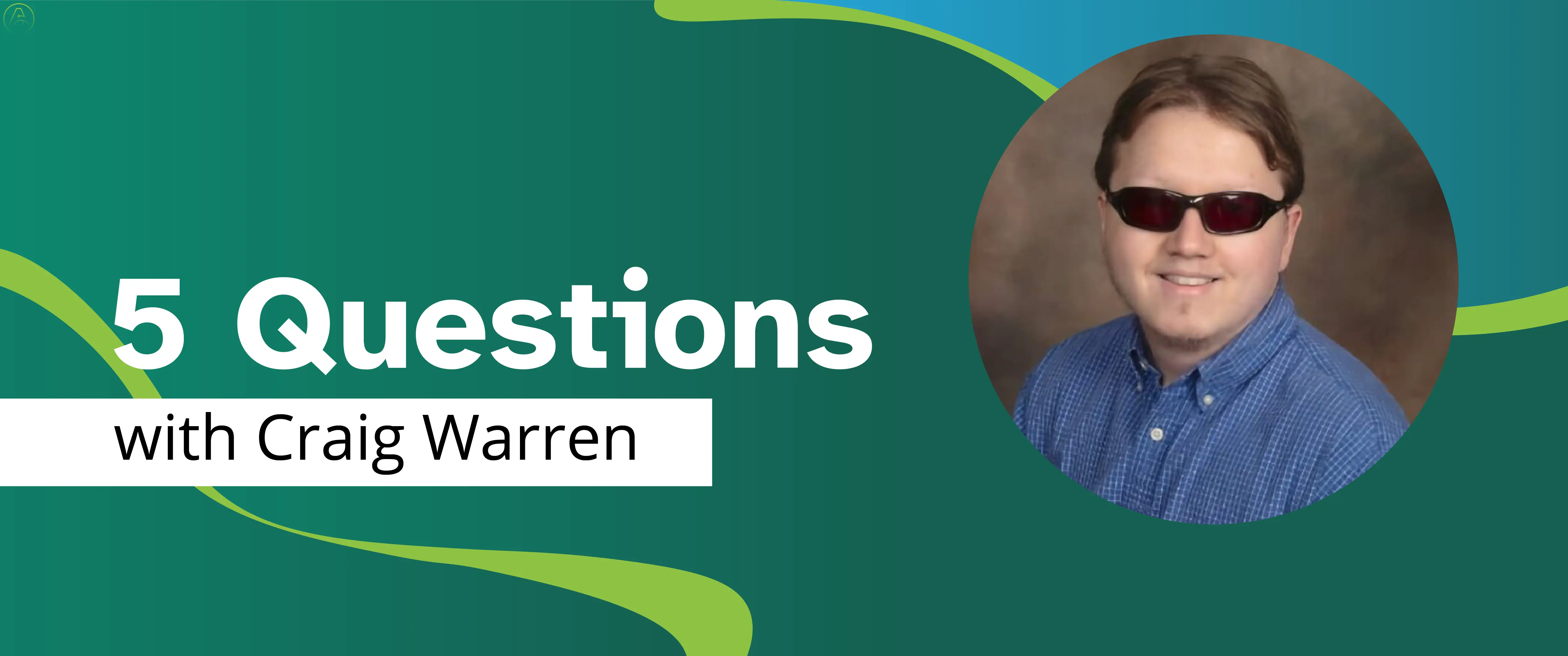Echolalia is a repetitive speech disorder characterized by involuntary repetition of someone else’s words. In very young children, echolalia is a common part of neurotypical language development. However, echolalia that lasts past age 3 or appears in adulthood may be a sign of another underlying condition.
Echolalia allows people who learn language differently to communicate in creative ways, which is why the condition is often associated with Asperger’s and autism spectrum disorder (ASD). However, not all people with autism have echolalia, and not all people with echolalia are autistic.
In this article, Ability Central answers the following questions about the condition:
What is echolalia?
What causes echolalia?
What are the signs of echolalia in children?
What are the signs of echolalia in adults?
What are the different types of echolalia?
Is echolalia a sign of autism?
Is there a connection between echolalia and ADHD?
What other conditions may be confused with echolalia?
What are the treatment options for echolalia?
Where can I find help for echolalia?
What is echolalia?
Echolalia is the non-voluntary repetition of another person’s speech. Another echolalia definition comes from its Greek roots: “echo,” which means “repeat,” and “lalia,” which means “speech.”
While repeating words or phrases is common in toddlers, when the echoing continues after age three, it may be a sign of a learning disability or other condition.
Adults can also be affected by echolalia, usually alongside co-morbid conditions like stroke, encephalitis, or dementia.
What causes echolalia?
In most cases, echolalia is a normal part of neurotypical language development. When echolalia lasts past age 3 or appears in adulthood, however, it may be linked to a different condition, disease, or learning disability.
Autism spectrum disorder is the most common cause of echolalia. Approximately 75% of people with autism will show signs of echolalia.
Other developmental, neurological, and psychological conditions that can cause echolalia include:
Developmental delay
Learning disabilities
Schizophrenia
Speech, language, or processing disorders
Stress and anxiety
Echolalia can also be caused by certain health conditions or trigger events, which is usually the case for adults who spontaneously develop echolalia. These include:
Amnesia
Aphasia (both Wernicke’s and Broca’s)
Delirium
Encephalitis
Head injury or traumatic brain injury (TBI)
What are the signs of echolalia in children?
In toddlers, echolalia is a common part of learning a spoken language for the first time.
Small children using echolalia as a learning tool might:
Try to process information by repeating words or phrases.
Imitate their parents to learn animal sounds or letter sounds.
Repeat words or phrases, even if they don’t know what they mean. For example, a parent might say, “Do you see the yellow cat?” and the child might respond, “Cat, cat, yellow cat, see cat.”
A child older than 3 with echolalia might repeat phrases, questions, and words as a way of:
Making a request. For example, they might say, “Do you want some milk?” instead of “I want some milk.”
Dealing with stress or trying to concentrate. (In people with autism, this is known as self-stimulation, or “stimming.”)
Making a suggestion, like saying “Ready or not, here I come!” instead of “Let’s play hide and seek.”
Saying “yes” when asked a question. For example, they might respond to “Do you want to play outside?” with “Do you want to play outside?” to show they agree.
Expressing disagreement or displeasure. For example, if a friend on the playground is upsetting them, they might say, “We always share our toys” because they associate the phrase with discipline or disapproval.
What are the signs of echolalia in adults?
The symptoms of echolalia in adults are similar to echolalia symptoms in kids. The main difference is that adults with echolalia tend to repeat things in response to stress, rather than all the time.
Additionally, most forms of adult echolalia are related to an underlying cause. An adult with autism may have used echolalia all their life, while someone recovering from a stroke, for example, might suddenly develop echolalia.
What are the different types of echolalia?
There are two main types of echolalia.
*Immediate echolalia** is when someone repeats the word or phrase immediately, sometimes after a short pause.
*Delayed echolalia** is when someone repeats a word or phrase hours or days after hearing it.
Both forms of echolalia can appear as:
*Unmitigated echolalia**, or repeating another person’s exact words.
*Mitigated echolalia**, or slightly changing the words during repetition.
There are also two ways echolalia can function:
*Interactive echolalia** is also called functional echolalia. It means the person has memorized a word or phrase to communicate more effectively, even if what they repeat has no obvious relevance to what they’re trying to say. For example, instead of asking to stop at a particular fast food restaurant, they sing the jingle from the restaurant’s commercials.
*Non-functional echolalia** means the words or phrases are not an attempt to communicate but are instead just noises, typically used to self-soothe or self-stimulate.
Is echolalia a sign of autism?
About 75% of verbal people with Asperger’s syndrome or autism spectrum disorder (ASD) also have echolalia. However, echolalia does not always mean someone is autistic. Additional symptoms and further testing are always required to diagnose Asperger’s and ASD.
Early signs of autism in toddlers and children include:
Not responding to their name
Avoiding eye contact
Not smiling when you smile at them
Repetitive movements
Preferring a strict daily routine
Difficulty in making friends
Taking things very literally
Signs of autism in adults include:
Difficulty understanding other people’s feelings and nonverbal communication
Trouble regulating emotion
Repetition in speech or behavior
Strict daily routines
Is there a connection between echolalia and ADHD?
Though not common, people with [attention deficit/hyperactivity disorder (ADHD) may also have echolalia. Echolalia in ADHD may act as a self-stimulation behavior (also called stimming) or self-soothing behavior as the person repeats songs or phrases.
What other conditions may be confused with echolalia?
Echolalia is sometimes confused with other speech-language disorders or speech-sound disorders, but there are differences between each diagnosis.
Someone with a language disorder has difficulty with getting their meaning or message across to others ([expressive language]()) or understanding the message coming from others ([receptive language]()). These language disorders are sometimes called language disabilities.
Speech disorders are any condition that affects a person’s ability to produce the sounds that create words. These include [aphasia](), [apraxia](), [dysarthria](), and muscle weakness.
Phonological disorder or [phonological processing disorder]() is a kind of speech disorder where the person cannot organize the patterns of sounds in their brain, so they cannot say the word correctly.
Echolalia differs from [Tourette’s syndrome]() and [stuttering]() in that the uncontrollable tics of Tourette’s and the repetitive nature of stuttering are not the repetition of someone else’s words or phrases. However, some people with Tourette’s can also develop echolalia.
To learn more about each of these diagnoses, see Ability Central’s library of speech, language, and sound disorder resources, including:
What are the treatment options for echolalia?
Echolalia treatment may include:
Cognitive behavioral therapy
Social skills training
Speech therapy
Occupational therapy
Certain medications can alleviate some echolalia symptoms, but these medications are typically taken to treat an underlying condition rather than the echolalia itself.
Where can I find help for echolalia?
If you have verbal repetition concerns for yourself or your child, your family doctor, primary care provider, or pediatrician is a good place to start. Your doctor may refer you to specialists like:
Speech-language pathologists or speech therapists
Neurodevelopmental specialists
Psychologists or psychiatrists
Special education professionals
If you’re not sure where to start, Ability Central offers a searchable database of nonprofits that can help with everything from diagnosis to treatment to support groups. Use our Service Locator tool to find an organization near you.



